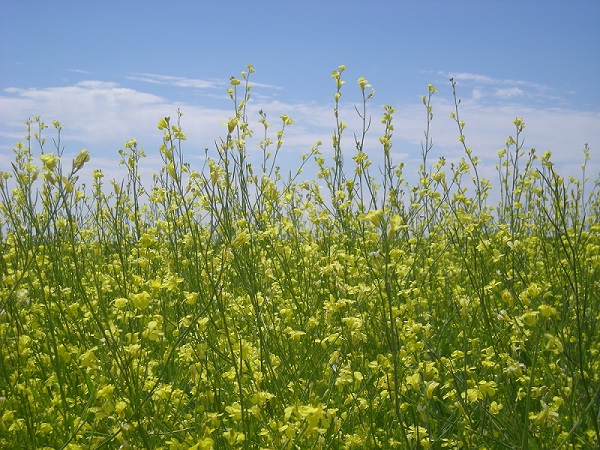Qantas launches first dedicated US-Australia biofuel flight
29 January, 2018
3 min read
By joining our newsletter, you agree to our Privacy Policy


The world’s first dedicated biofuel flight between the US and Australia is expected to save 18,000kgs in carbon emissions during a 15-hour Qantas Boeing 787-9 flight from Los Angeles to Melbourne.
The 10 per cent blend of biofuel and traditional fuel is part of a push by Qantas to foster the development of a local biofuel industry using a type of mustard seed, Brassica Carinata, that cannot be used for food.
The seed has been developed by Canadian-based agricultural technology company Agrisoma Biosciences and can be grown in arid climates and between regular food crop cycles.
The flight, due to leave Monday Eastern Australian time, is part of a partnership announced in 2017 that will see the companies work with Australian farmers to grow a commercial biofuel seed crop by 2020.
“Our partnership with Agrisoma marks a big step in the development of a renewable jetfuel industry in Australia – it is a project we are really proud to be part of as we look at ways to reduce carbon emissions across our operations,’’ Qantas International chief executive Alison Webster said in a statement.
The companies say Carinata-derived biofuel can reduce carbon emissions by eighty per cent compared to traditional fuel across its lifecycle.
This takes into account factors such as the CO2 absorbed by the plants as they grow as well as the gas produced by producing, transporting and burning the fuel.
Qantas estimated the use of the fuel would see a further 7 per cent reduction in emissions compared to the normal operation of the already fuel-efficient Dreamliner.
Qantas is hoping that Carinita, which requires no specialised production or processing techniques, will prove attractive to Aussie farmers.
Fielf trials of the water-efficient plant by The University of Queensland in Gatton, Queensland, and in Bordertown, South Australia, show it should do well in the Australian climate.
It is sown in either fallow areas where food crops fail or in between regular crop cycles to improve soil quality, reduce erosion and provide farmers with additional income.
“Biojet fuel made from Carinata delivers both oil for biofuel and protein for animal nutrition while also enhancing the soil its grown in,’’ Agrisoma chief executive Steve Faijanski said.
“We are excited about the potential of the crop in Australia and look forward to working with local farmers and Qantas to develop a clean energy source for the local aviation industry.’’
While the production of feedstock is a necessary precursor to establishing a biofuels industry, a thornier problem is finding an economically viable means of production.
The biofuel project is one of a number of ways Qantas is seeking to reduce its fuel burn.
READ: Qantas questions fuel efficiency report.
Next Article
2 min read
Qantas triples profit but misses mark

Get the latest news and updates straight to your inbox
No spam, no hassle, no fuss, just airline news direct to you.
By joining our newsletter, you agree to our Privacy Policy
Find us on social media
Comments
No comments yet, be the first to write one.
